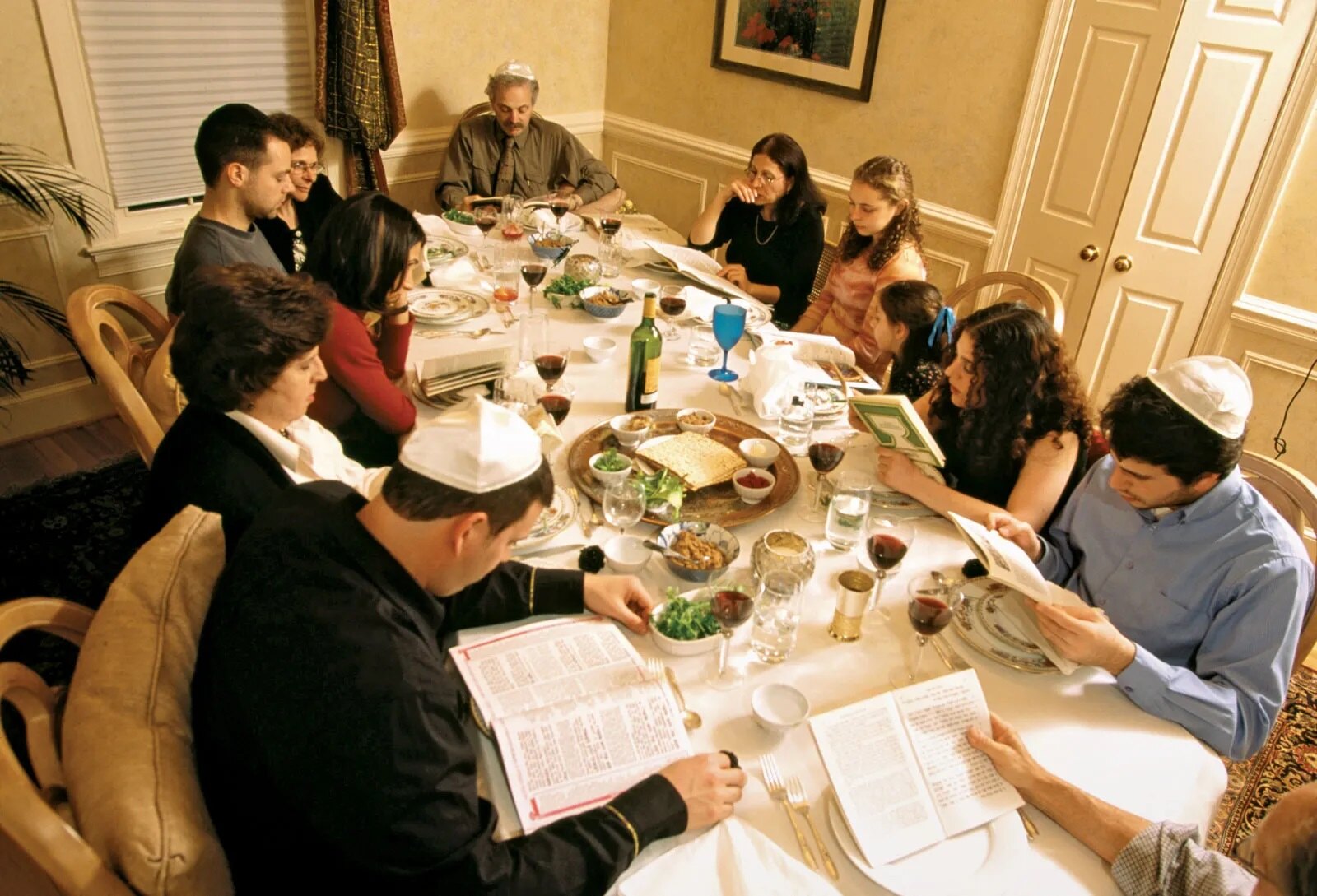
The Passover is a significant and sacred festival in the Jewish faith, commemorating the liberation of the Israelites from slavery in ancient Egypt. This annual celebration is rich in history, tradition, and symbolism, making it a deeply meaningful and cherished observance for Jewish communities worldwide. As we delve into 15 fascinating facts about the Passover, we will uncover the profound significance of this holiday and gain a deeper understanding of its customs and rituals. From the traditional Seder meal to the symbolic elements such as matzah and the Haggadah, the Passover offers a profound opportunity for reflection, gratitude, and unity. Join us on this enlightening journey as we explore the captivating facets of the Passover, shedding light on its cultural, spiritual, and historical importance.
Key Takeaways:
- The Passover is a special Jewish holiday that celebrates freedom, family, and renewal through traditions like the Seder meal and the symbolic eating of matzah.
- This festival brings people together to reflect on gratitude, share stories, and embrace acts of kindness, bridging ancient history with modern values of hope and unity.
The Passover is a significant Jewish festival.
The Passover, also known as Pesach, is a major Jewish holiday that commemorates the liberation of the Israelites from slavery in ancient Egypt. It is celebrated with great fervor and is marked by various customs and rituals that hold deep spiritual and historical significance for the Jewish community.
The festival lasts for seven or eight days.
During the celebration of The Passover, Jewish people observe the holiday for seven days in Israel and for eight days in the diaspora. This extended period allows for a thorough and meaningful observance of the festival's traditions and practices.
The Seder meal is a central feature of the Passover celebration.
The Seder, a ceremonial meal, is a pivotal aspect of The Passover observance. It involves the retelling of the Exodus story, consumption of symbolic foods, and the recitation of prayers and blessings. The Seder serves as a powerful way to pass down the story of the Israelites' journey from slavery to freedom to future generations.
The Haggadah is read during the Seder.
The Haggadah, a text that sets forth the order of the Passover Seder, contains the narrative of the Exodus and provides a guide for the rituals and traditions observed during the meal. It is a cherished and essential component of the Seder, guiding participants through the evening's proceedings.
Matzah is a key element of the Passover diet.
During The Passover, the consumption of chametz (leavened food items) is prohibited. Instead, matzah, an unleavened bread, is eaten to symbolize the haste with which the Israelites fled Egypt. This dietary restriction is a fundamental part of the holiday observance.
The Passover celebrates freedom and renewal.
The festival serves as a reminder of the Israelites' deliverance from bondage and their journey to freedom. It symbolizes the renewal of faith, the triumph of the human spirit, and the enduring hope for a brighter future.
The holiday begins with the Seder on the first two nights.
The Passover commences with the Seder, which takes place on the first two evenings of the festival. Families and communities come together to partake in the Seder rituals, fostering a sense of unity and shared heritage.
The Passover is a time for reflection and gratitude.
During The Passover, individuals reflect on the blessings of freedom and express gratitude for the liberties they enjoy. It is a period for introspection, appreciation, and acknowledging the value of liberation.
The festival is steeped in rich traditions and customs.
The Passover is characterized by a myriad of customs, including the removal of chametz from the home, the lighting of holiday candles, and the recitation of special blessings. These traditions contribute to the festive atmosphere and hold deep cultural and religious significance.
The story of the ten plagues is recounted during the Seder.
As part of the Seder ritual, the narrative of the ten plagues that befell Egypt is recounted. This serves as a poignant reminder of the hardships endured by the Israelites and the divine intervention that ultimately led to their freedom.
The Passover is a time for family gatherings and community bonding.
Families and communities come together to celebrate The Passover, fostering a sense of togetherness and camaraderie. The holiday provides an opportunity for shared meals, storytelling, and the strengthening of familial and communal bonds.
The festival marks the beginning of spring.
The timing of The Passover aligns with the arrival of spring, symbolizing a season of renewal and new beginnings. This connection to nature adds a layer of symbolism to the holiday, signifying the themes of rejuvenation and hope.
The Passover is a time for acts of charity and kindness.
The holiday encourages acts of compassion and generosity towards those in need. It serves as a reminder to extend a helping hand to others and to uphold the values of empathy and benevolence.
The Passover is a blend of historical remembrance and contemporary relevance.
While The Passover commemorates an ancient event, its themes of liberation, resilience, and faith remain pertinent in the modern context. The festival bridges the past and present, offering timeless lessons and inspiration.
The Passover holds universal significance.
Beyond its religious and cultural importance to the Jewish community, The Passover conveys universal themes of freedom, justice, and the enduring human spirit. It serves as a source of inspiration and reflection for people of diverse backgrounds.
The Passover is a cherished and profound observance that encapsulates the enduring legacy of the Israelites' journey to freedom and the timeless values it represents. This festival, with its rich traditions and symbolic rituals, continues to resonate with individuals and communities, fostering a spirit of unity, gratitude, and hope.
Conclusion
In conclusion, the Passover is a significant and meaningful holiday in the Jewish faith, commemorating the liberation of the Israelites from slavery in ancient Egypt. It is a time for reflection, gratitude, and celebration, marked by various traditions and rituals that have been passed down through generations. The observance of Passover serves as a powerful reminder of the enduring values of freedom, faith, and community. By understanding the rich history and customs associated with this holiday, individuals from all walks of life can gain a deeper appreciation for the cultural and spiritual significance of the Passover.
FAQs
What is the significance of the Passover?
The Passover holds great significance in the Jewish faith as it commemorates the liberation of the Israelites from slavery in ancient Egypt. It symbolizes freedom, faith, and the enduring strength of the Jewish community.
What are some traditional foods eaten during Passover?
Traditional Passover foods include matzo, bitter herbs, charoset, and a variety of dishes made without leavened ingredients, symbolizing the hardships endured by the Israelites during their exodus from Egypt.
As you reflect on the rich traditions and significance of the Passover, why not explore another fascinating aspect of Jewish culture? Manischewitz wine, a staple at many Seder tables, has its own intriguing history and cultural relevance. From its humble beginnings to its current status as a beloved Passover tradition, the story of Manischewitz wine is sure to captivate your interest and deepen your appreciation for the diverse elements that make the Passover such a meaningful and enduring celebration.
Was this page helpful?
Our commitment to delivering trustworthy and engaging content is at the heart of what we do. Each fact on our site is contributed by real users like you, bringing a wealth of diverse insights and information. To ensure the highest standards of accuracy and reliability, our dedicated editors meticulously review each submission. This process guarantees that the facts we share are not only fascinating but also credible. Trust in our commitment to quality and authenticity as you explore and learn with us.


